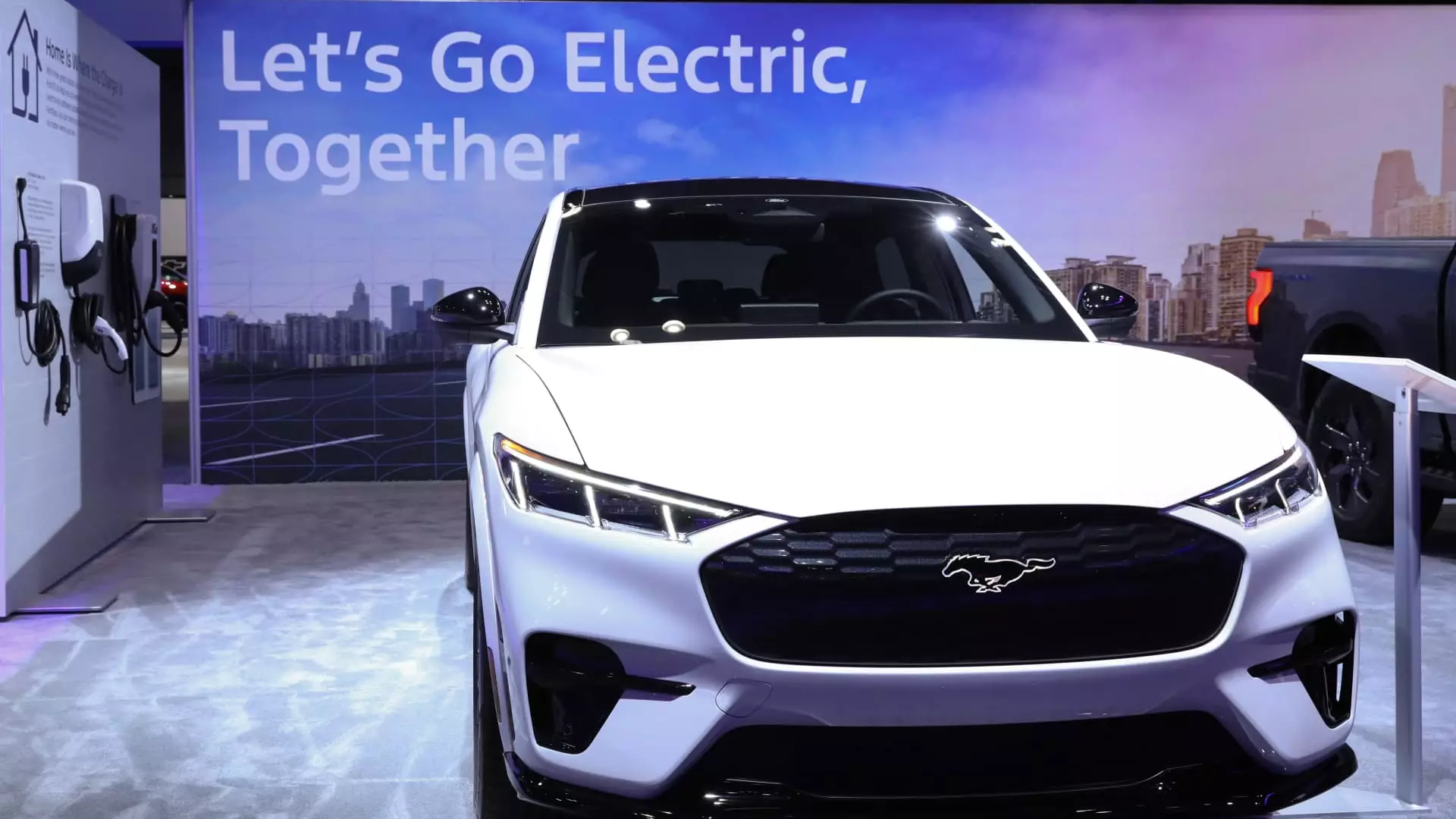Ford Motor has experienced an 11.2% increase in U.S. new vehicle sales compared to the previous year, with a significant boost coming from sales of hybrid and all-electric models. While traditional vehicles with internal combustion engines saw a more modest 5.6% rise in sales, hybrids and EVs saw a whopping 65% increase in sales.
Challenges with EV Sales
Despite the impressive growth in hybrid and electric vehicle sales, these segments only accounted for around 14% of the total sales in May. This poses a challenge for investors as Ford’s Model E electric vehicle unit continues to report significant losses. The division reported a staggering $1.32 billion loss on just 10,000 vehicles wholesaled in the first quarter of the year. This translates to a loss of $132,000 for each vehicle sold by the unit.
In May, Ford reported a nearly doubled sales of its all-electric F-150 Lightning pickups compared to the previous year. Sales of the Mustang Mach-E EV also saw a substantial increase of 46% year over year. These successes indicate a growing interest in electric vehicles among consumers, despite the challenges faced by Ford in this segment.
Ford’s spike in hybrid sales is part of a broader strategy to double down on the technology. The automaker has announced plans to delay the production of new all-electric vehicles and instead focus on offering hybrid options across its entire North American lineup by 2030. This shift reflects Ford’s commitment to adapting to changing market trends and evolving consumer preferences.
Ford reported a total of 877,685 units sold year-to-date through May, marking a 5.6% increase compared to the same period in the previous year. The growth in sales has been primarily driven by a significant increase in SUV sales, as well as a moderate uptick in truck and van sales. This indicates that Ford’s overall sales performance remains strong, despite the challenges encountered in the electric vehicle segment.
Ford’s recent increase in hybrid and electric vehicle sales demonstrates a shift towards sustainable mobility solutions. While the company faces challenges in scaling its electric vehicle business, the success of models like the F-150 Lightning and Mustang Mach-E indicates a growing consumer interest in electric vehicles. By focusing on hybrid technology and adapting to changing market trends, Ford remains poised for future growth and success in the rapidly evolving automotive industry.

